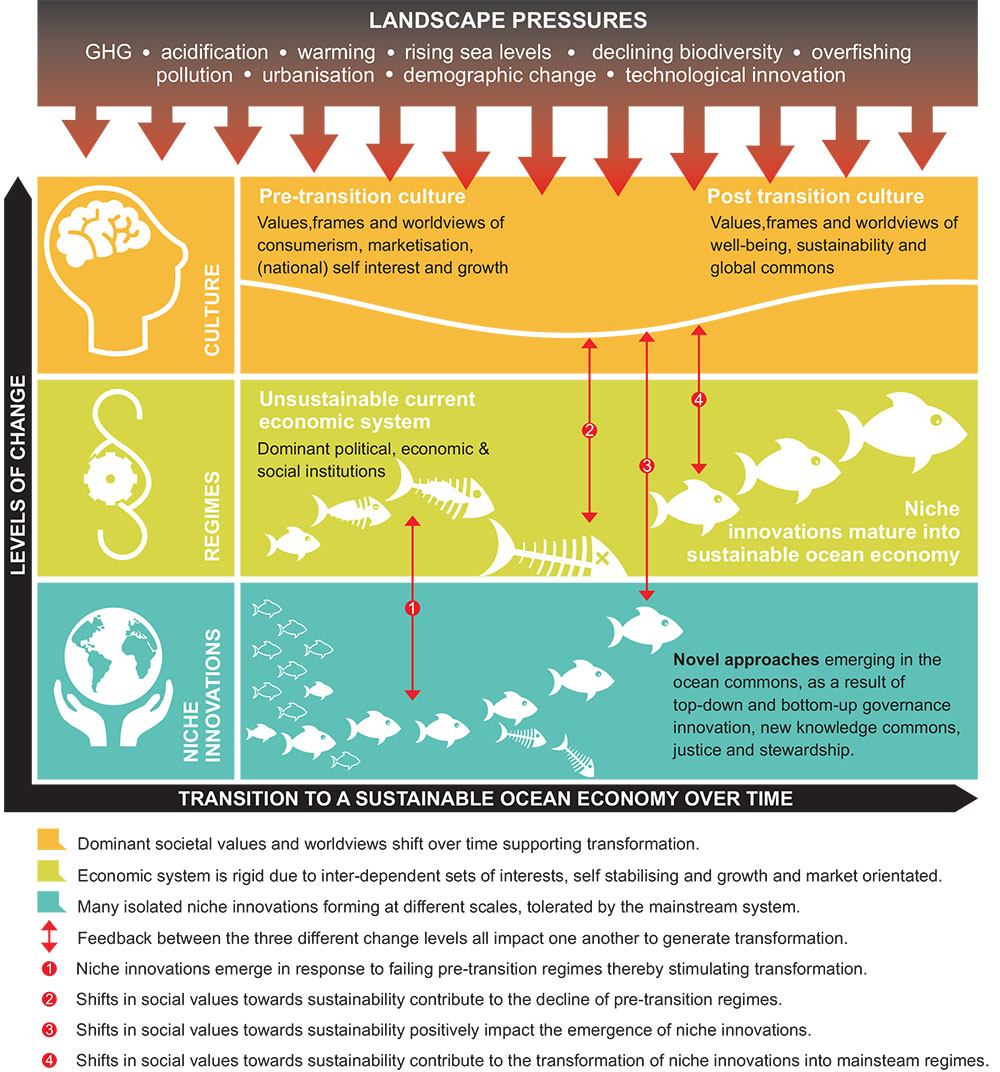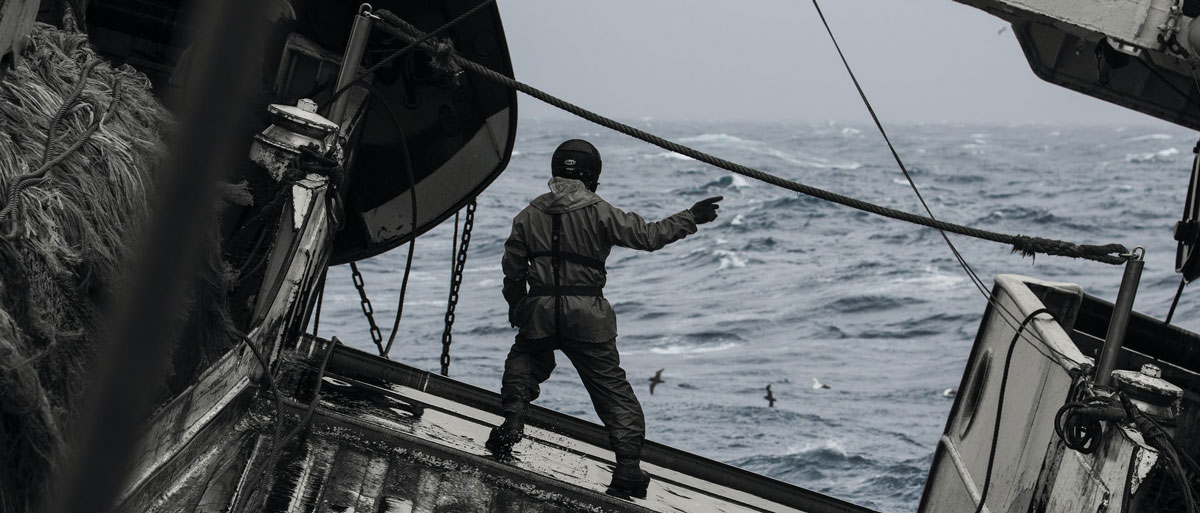Bildtext får vara max två rader text. Hela texten ska högerjusteras om den bara ska innehålla fotobyline! Photo: B. Christensen/Azote
OCEAN STEWARDSHIP
Humans need to do better to avoid ocean system collapse
- Three key transition pathways for the complex ocean systems to a more sustainable future
- Need to build the kind of resilience that enables effective, agile responses to sudden system changes such as COVID-19
- Transformative change in ocean governance is required to maintain the contributions of the ocean to people
Should the ocean system collapse, the resultant crisis would be as devastating as the COVID-19 crisis
A NEW RELATIONSHIP: The COVID-19 crisis is the classic example of a ‘butterfly effect’: from the over-exploitation of nature in a Wuhan wild meat market to a global pandemic, this crisis demonstrates the absolute necessity to build the kind of resilience that enables effective, agile responses to sudden system changes.
Should the ocean system collapse, the resultant crisis would be as devastating as the COVID-19 crisis.
In a paper titled "A transition to sustainable ocean governance" describes three key transition pathways for the complex ocean systems to a more sustainable future.
Complex systems are such that small disruptions can have disproportionately large impactful system-wide effects.
Tanya Brodie Rudolph, lead author
Authors of the paper include Tanya Brodie Rudolph and Prof Mark Swilling from the Centre for Complex Systems in Transition at Stellenbosch University, Mary Ruckelshaus from Stanford University’s Natural Capital Project, Edward H. Allison from from WorldFish, Malaysia, and the Nippon Foundation Ocean Nexus Center, Earthlab, University of Washington, Henrik Österblom from the Stockholm Resilience Centre, Stefan Gelcich from Pontificia Universidad Católica de Chile and Philile Mbatha from the University of Cape Town.
Three ways forward
The paper describes three key pathways to transition complex ocean systems to a more sustainable future:
- Re-configure governance - including top-down and bottom-up nested scales from local to international - and informed by a shared vision
- Empower people who depend on the ocean commons through knowledge sharing for adaptive learning and conferring rights to the ocean as a public good
- Reform ownership through mechanisms such as certification and pre-competitive collaboration. The Marine Stewardship Council’s fishery certification system and rights-based fishery reforms like catch shares are promising examples of such innovations.
“Human wellbeing relies on the biosphere, including natural resources provided by ocean ecosystems. As multiple demands and stressors threaten the ocean, transformative change in ocean governance is required to maintain the contributions of the ocean to people,” co-author and centre researcher Henrik Österblom.
The Nature Communications article is a summary of a blue paper compiled by the authors under the commission of the High Level Panel for Sustainable Ocean Economy, an initiative of 14 serving world leaders building momentum toward a sustainable ocean economy.

Brodie Rudolph, T., Ruckelshaus, M., Swilling, M., Allison, E.H., Österblom, H., Gelcich, S., Mbatha, P. 2020. A transition to sustainable ocean governance. Nat Commun 11, 3600 (2020). https://doi.org/10.1038/s41467-020-17410-2
For more information about the publication, contact co-author Henrik Österblom











